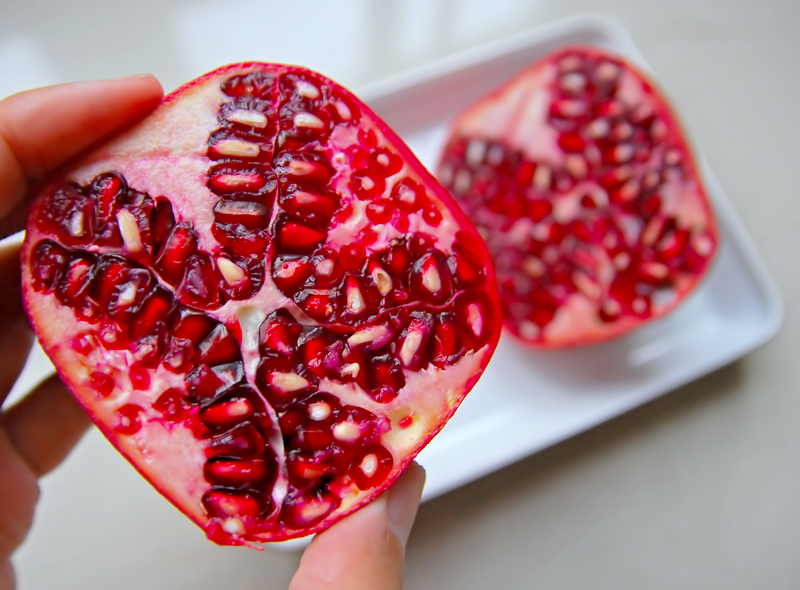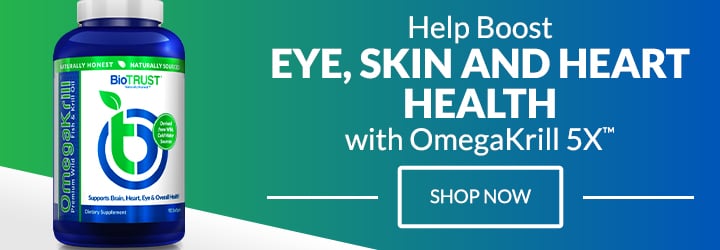10 Foods that Help Fight Depression and Fatigue

Today, taking care of your mental health is as important as ever before, if not more so. After all, mental health impacts how we feel, think, act, handle stress, relate to others, and make choices. Strong mental health improves our physical health, our relationships, our work, and how we contribute to our communities. 1 And one of the best things we can do to support mental health is to choose to nourish our bodies with foods that help fight depression and fatigue.
While therapy and medication are often the treatment of choice (and often very important pieces to the puzzle), the foods we eat may also have an impact on how we’re feeling as they can influence brain chemicals. 2 For example, ~95% of the feel-good hormone serotonin is produced in the gut. This neurotransmitter helps regulate appetite, sleep, pain, and, of course, mood. In other words, the digestive system not only breaks down food to nourish the body but impacts emotions. 3
Sadly, when we’re feeling down, we’re often more likely to choose foods that spiral us downward (e.g., sugar, junk food) rather than those that help lift us up. That can lead us to feel even worse, often leading us to eat more foods that don’t support our emotional or physical well-being. The cheeseburgers, fries, and shake may give a momentary jolt, but because the nutritional value is so low, they don’t provide long-lasting energy or support for a positive mood.
RELATED: Collagen Doesn’t Work (Unless…)
That’s why it’s so important to safeguard mental health by choosing healthy foods proactively. Good nutrition, in short, may help improve mood. So, let’s get to 10 top foods that help fight depression and fatigue.
Foods that Help Fight Depression and Fatigue
1. Dark Leafy Greens
Take your pick from spinach, kale, romaine lettuce, Brussels sprouts, Swiss chard, watercress, etc. These nutrient powerhouses have been shown in research to support healthy levels of inflammation. This is important as brain inflammation and depression are linked. 4 Leafy greens also provide the omega-3 fatty acid ALA (alpha-linolenic acid) as well as folate, which have both been shown to support a healthy mood. 5
2. Unprocessed Grains
Complex carbohydrates as found in the hull of grains provide the body with energy as well as fiber. Whole grains are also good sources of B-vitamins, which are used by the body to synthesize neurotransmitters like serotonin, dopamine, and norepinephrine. 6
3. Fish and Seafood
Especially consuming small, oily fish that provide plenty of omega-3 fatty acids, like salmon, sardines, mackerel, anchovies, and herring may help support mood by decreasing excess inflammation in the brain and body. 7 In countries where fish is the protein of choice, research indicates there’s also a lower rate of depression than in countries where the people consume smaller amounts of fish. 8
Other research found that people who consumed the most fish were less likely to experience symptoms of depression. 9
4. Fermented Foods
Again, gut health and brain health are closely linked, so eating more probiotic-providing foods like sauerkraut, kimchi, and Greek yogurt may help. More research is needed, but it’s believed that supporting balanced gut health is important for mood due to the chemicals produced by the bacteria in the gut, including serotonin and gamma-Aminobutyric acid (GABA). 10
5. Nuts
Another category of foods that provides omega-3 fats are nuts. Walnuts are the winner, but cashews, Brazil nuts, and hazelnuts are also good sources. One study in particular found that walnuts can have a big effect—with up to 26% lower depression scores for people who consumed ¼ cup per day. 11
Nut eaters have also been found to be more likely to have greater optimism, energy, hope, and concentration.
6. Seeds
Seeds, particularly flaxseeds, chia seeds, and hemp seeds, are also high in omega-3 fatty acids. They also provide carbs with fiber, which provide a good boost of steady energy as they slowly digest. In addition, they’re also a great source of tryptophan. 12 Speaking of which…
7. Foods High in Tryptophan
Turkey, tofu, chicken, eggs, fish, and pumpkin, squash, and sesame seeds are all rich in tryptophan. 12 The reason this may impact mood is because tryptophan is a precursor to serotonin production. Low levels of serotonin in the brain can lead to poor memory, depressed mood, and other unhappy effects. 13 So consuming foods that provide this valuable amino acid may help support mood and brain health.
8. Antioxidant-Rich Fruits and Vegetables
Antioxidants are used throughout the body to fight free radicals and oxidative stress. They may also help the body better balance inflammation. This is significant, as chronic excess inflammation has been linked to a variety of health issues from diabetes to arthritis to depression and more. 14, 15 Foods rich in antioxidants include berries, nuts, pomegranates, coffee, green tea, and many herbs. 16
These fresh foods also provide a wealth of nutrients to fuel your busy lifestyle, without leaving you feeling dragged down and heavy.
9. Selenium-Rich Foods
Eating enough selenium-rich foods (without getting too much) has also been found in some research to help support healthy mood. 17 Foods high in selenium include Brazil nuts, whole grains, some seafood, and organ meats.
10. Foods that Provide Vitamins B12 and B9
Other vitamins needed for brain and nervous system health include B12 and folate. 17 Foods high in B12 include eggs, meat, poultry, fish, and milk. And foods that provide folate include dark leafy greens, fruits, nuts, beans, whole grains, meat, poultry, and eggs.
Putting it All Together
There is one well-studied diet that has been shown to have a positive effect on mental health. 2 The Mediterranean diet, which provides a wide variety of the foods previously mention, was shown to help reduce depression by up to 16% when compared to people following a typically Western diet. 18 Other research has shown an even bigger decrease in the risk of up to 35% lower. 14 The traditional Japanese, Norwegian, and Chinese diets have also been associated with improved mood likely because they all are rich in vegetables and fish. Other diets that show high potential include The Mind Diet and the Dash Diet.
Along with the foods you eat are foods you may want to avoid, as they can lead to depression and fatigue. These include processed and refined sugars and other carbohydrates as well as refined fats as found in prepackaged pastries, cookies, and white bread and processed meats like bacon, hot dogs, and sausage. Eating a lot of fast food has also been associated with increase risk for depression and fatigue. 19
Soda is also a common culprit for decreased mood and energy crashes. 20 Cutting back on sugar in general has been shown in research to help decrease the risk of depression significantly. 20 Eating only modest amounts of meats and dairy may also help support mental health. 14
Perhaps most important is to learn to pay attention to how eating different foods impacts your mood, energy levels, and how you’re feeling both after eating them and into the next day. Just making modest changes to your diet may have a tremendous effect on how you feel physically and emotionally. In other words, it’s not necessary to overhaul your entire diet to eat only mood-boosting foods. But choosing those above instead of something processed could be a gamechanger over time.
Foods that Fight Depression and Fatigue: A Recap
Of course, what you eat is only one aspect of mental health. Other causes can be more or less out of your control, such as a chemical imbalance, genetics, traumatic or stressful events, lack of support and community, a sedentary lifestyle, and lack of access to nature. In other words, mental health is complex and varies from person to person. Please get help if you need it, immediately if you are considering any self-harm or just giving up. Reach out to your personal medical provider or the Substance Abuse and Mental Health Services Administration (SAMHSA) National Helpline at 1.800.662.4357.
If, however, you are just feeling a little low or are looking for a mental boost to increase energy levels, one positive proactive step is to choose foods that support your mood. As a bonus, these types of foods can also have an overall positive affect on your health and vitality.
Other steps that may be helpful include spending more time with friends, family, and community, exercising regularly, getting enough sunlight, maintaining a healthy weight, cutting back on caffeine and alcohol, spending time with a pet, and getting enough sleep.
There’s no perfect plan that works for everyone. However, nutritional and lifestyle changes may help enhance the effects of working with a mental health profession or just lift your mood and energy levels.





 7 Signs Your Body is Seriously Low on Collagen (not just wrinkles)
7 Signs Your Body is Seriously Low on Collagen (not just wrinkles) Health Expert: "Turmeric Doesn't Work (unless...)"
Health Expert: "Turmeric Doesn't Work (unless...)" 3 Warning Signs Your Probiotic Supplement is a Total Waste
3 Warning Signs Your Probiotic Supplement is a Total Waste

